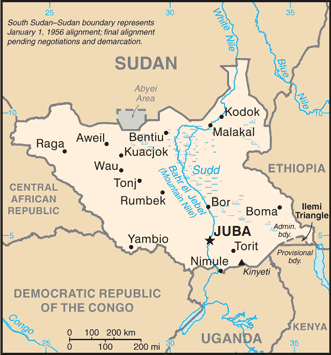
South Sudan’s rival leaders have finally agreed to form a transitional “government of national unity,” officially putting an end to more than six years of civil war that has left millions displaced and an estimated 400,000 dead. The breakthrough came on Feb. 20, when President Salva Kiir met rebel leader Riek Machar in the capital Juba, and agreed to appoint Machar as his deputy in a new three-year coalition government—part of a long-delayed power-sharing deal. Kiir and Machar, who leads the Sudan People’s Liberation Movement-in Opposition (SPLM-IO), first signed the deal in September 2018, but were unable to finalize terms and missed two previous deadlines—May 2019 and November 2019. The new pact comes just as a third 100-day extension, brokered last year by Uganda, was about to run out.
Critical to the breakthrough is Kiir’s offer to return South Sudan to 10 states—after unilaterally increasing them to 32. This is a major demand of the opposition, who charge that Kiir’s redrawing of boundaries is designed to gerrymander Dinka majorities in resource-rich areas, especially those with oil. Those same majorities could also ensure Kiir wins the national elections slated to take place in three years. (TNH, TNH, The East African, Middle East Eye)




